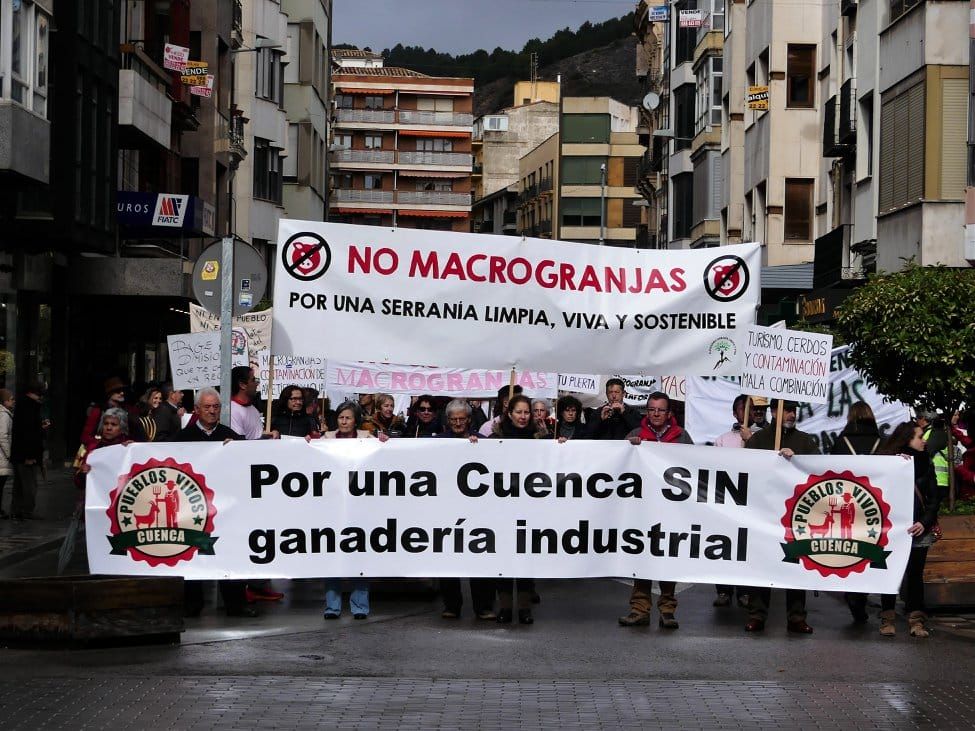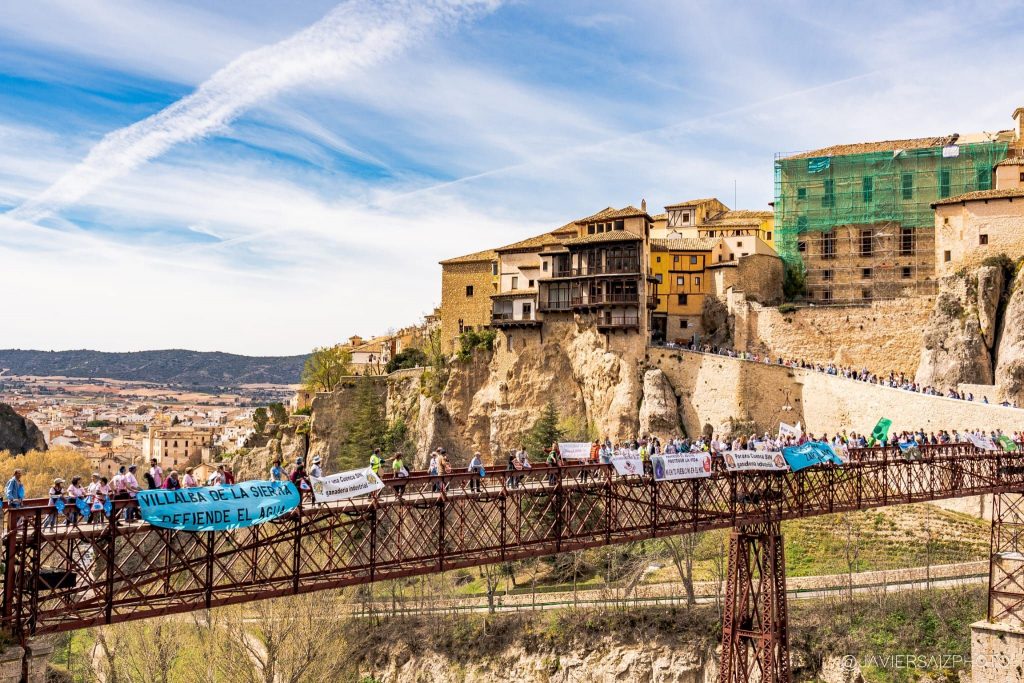- This story is part of a series highlighting local testimonies and collective action against animal factories
Remedios Bobillo, also known as Reme, hails from Mota del Cuervo, a small municipality in the province of Cuenca, about 100 kilometres inland from Madrid, Spain. In 2018, her life took a significant turn when she found herself leading a local resistance against a proposed pig factory in her village. Her fight soon grew into something larger, when she joined forces across communities and across the country.
How it began
Reme’s activism against animal factories sparked when she saw a seemingly simple news announcement: a permit had been approved for a pig factory in her village that would initially hold 1,990 pigs, with the possibility of later expanding to 7,200 pigs – a proper industrial-scale project, with significant environmental and social impacts.
Reme quickly organised her neighbours, creating a WhatsApp group called Pueblo Sostenible (Sustainable Village) to mobilise and inform the community. To empower action, she arranged meetings with environmentally-aware experts – a hydrogeologist, a pneumologist, a local politician – to inform the community of the impacts and dangers the pig factory posed.
A hydrogeological study actually proved crucial: it demonstrated that the planned location of the factory, – just 600 metres from the village’s main water source – could contaminate the water supply, posing a direct threat to public health.
Three years of persistence later, their efforts paid off as the new municipal government denied the building permit for the pig factory.

What’s at stake
Factory farming is an issue that resonates across rural Spain. Reme’s story illustrates the many ways these operations disrupt local life. The most obvious impacts and the ones that generate the most rejection from the population are the smell and the flies. But the worst damage, she explains, comes from water pollution, which is harder to see until it is analysed and reported.
In addition to environmental harm, animal factories can dramatically alter the identity and economy of a town. As Reme points out,
“Once the factory farms are established, all the activity of the village is affected, for example the possibility of businesses linked to tourism or the price of housing, which is devalued”.
Expand the fight, join forces
As Reme and her community fought to protect Mota del Cuervo, they felt alone and unsure where to turn for support. Thankfully, she learned about Pueblos Vivos Cuenca (Living Villages of Cuenca), a provincial platform uniting various towns in the fight against factory farms. When she joined their WhatsApp group, she realised this wasn’t just a problem in her village, it was happening all over the province.
Much of this expansion was driven by the meat company Incarlopsa, which supplies Mercadona, Spain’s largest supermarket chain. Incarlopsa planned to expand its slaughterhouse in Tarancón to slaughter up to a million pigs annually. To meet this demand, more animal factories were needed throughout Cuenca, making it a hotbed of industrial food production projects.
Reme’s involvement with Pueblos Vivos Cuenca became pivotal to both her personal activism and the larger movement.
“I started going to demonstrations, to meetings to meet neighbours who were fighting to protect their villages from the factory farms. We began to weave relationships and so we became bigger and stronger”,
Reme says. She now serves as president of the association which continues to grow, and organises every year a provincial demonstration in Cuenca’s capital city.

But demonstrations are not all that the association does. In addition,
“when we find out that they are going to put a factory farm in a municipality, we usually make a press release and publish it on social media, in the hope that a resident of that municipality will contact the association for help. We hope to share our experience with them when they undertake their steps, give them all our support, both in social media, contacts, talks in their municipality, mobilisations, and of course make them feel that they are not alone, that we are many and very united”,
she explains. Their slogan is Neither in your town, nor in mine. Stop Animal Factory Farming.
Uproot the system
Reme’s experience in Pueblos Vivos Cuenca encouraged her to scale up her activism to the national level and to get involved in the CoordinadoraEstatal Stop Ganadería Industrial, a national association that brings together all the collectives and organisations fighting against animal farms.
“I think it is very important that each platform fights to protect its own people, but that these small movements unite at provincial, regional and, of course, national level. The next step would be for all the Stop Animal factory farming movements to unite at the European level. Let everyone defend their own piece of Mother Earth, and then together we can become big, very big”,
Reme concludes.







